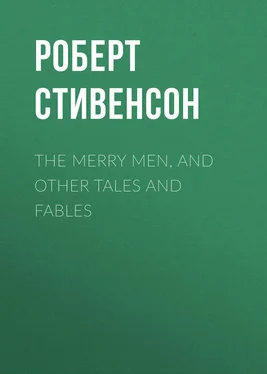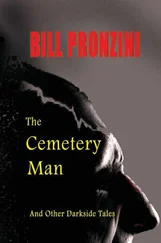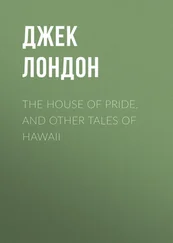Роберт Стивенсон - The Merry Men, and Other Tales and Fables
Здесь есть возможность читать онлайн «Роберт Стивенсон - The Merry Men, and Other Tales and Fables» — ознакомительный отрывок электронной книги совершенно бесплатно, а после прочтения отрывка купить полную версию. В некоторых случаях можно слушать аудио, скачать через торрент в формате fb2 и присутствует краткое содержание. Жанр: literature_19, foreign_antique, foreign_prose, на английском языке. Описание произведения, (предисловие) а так же отзывы посетителей доступны на портале библиотеки ЛибКат.
- Название:The Merry Men, and Other Tales and Fables
- Автор:
- Жанр:
- Год:неизвестен
- ISBN:нет данных
- Рейтинг книги:3 / 5. Голосов: 1
-
Избранное:Добавить в избранное
- Отзывы:
-
Ваша оценка:
- 60
- 1
- 2
- 3
- 4
- 5
The Merry Men, and Other Tales and Fables: краткое содержание, описание и аннотация
Предлагаем к чтению аннотацию, описание, краткое содержание или предисловие (зависит от того, что написал сам автор книги «The Merry Men, and Other Tales and Fables»). Если вы не нашли необходимую информацию о книге — напишите в комментариях, мы постараемся отыскать её.
The Merry Men, and Other Tales and Fables — читать онлайн ознакомительный отрывок
Ниже представлен текст книги, разбитый по страницам. Система сохранения места последней прочитанной страницы, позволяет с удобством читать онлайн бесплатно книгу «The Merry Men, and Other Tales and Fables», без необходимости каждый раз заново искать на чём Вы остановились. Поставьте закладку, и сможете в любой момент перейти на страницу, на которой закончили чтение.
Интервал:
Закладка:
‘Charlie,’ she said, ‘what’s right for me, neednae be right for you. There’s sin upon this house and trouble; you are a stranger; take your things upon your back and go your ways to better places and to better folk, and if you were ever minded to come back, though it were twenty years syne, you would find me aye waiting.’
‘Mary Ellen,’ I said, ‘I asked you to be my wife, and you said as good as yes. That’s done for good. Wherever you are, I am; as I shall answer to my God.’
As I said the words, the wind suddenly burst out raving, and then seemed to stand still and shudder round the house of Aros. It was the first squall, or prologue, of the coming tempest, and as we started and looked about us, we found that a gloom, like the approach of evening, had settled round the house.
‘God pity all poor folks at sea!’ she said. ‘We’ll see no more of my father till the morrow’s morning.’
And then she told me, as we sat by the fire and hearkened to the rising gusts, of how this change had fallen upon my uncle. All last winter he had been dark and fitful in his mind. Whenever the Roost ran high, or, as Mary said, whenever the Merry Men were dancing, he would lie out for hours together on the Head, if it were at night, or on the top of Aros by day, watching the tumult of the sea, and sweeping the horizon for a sail. After February the tenth, when the wealth-bringing wreck was cast ashore at Sandag, he had been at first unnaturally gay, and his excitement had never fallen in degree, but only changed in kind from dark to darker. He neglected his work, and kept Rorie idle. They two would speak together by the hour at the gable end, in guarded tones and with an air of secrecy and almost of guilt; and if she questioned either, as at first she sometimes did, her inquiries were put aside with confusion. Since Rorie had first remarked the fish that hung about the ferry, his master had never set foot but once upon the mainland of the Ross. That once – it was in the height of the springs – he had passed dryshod while the tide was out; but, having lingered overlong on the far side, found himself cut off from Aros by the returning waters. It was with a shriek of agony that he had leaped across the gut, and he had reached home thereafter in a fever-fit of fear. A fear of the sea, a constant haunting thought of the sea, appeared in his talk and devotions, and even in his looks when he was silent.
Rorie alone came in to supper; but a little later my uncle appeared, took a bottle under his arm, put some bread in his pocket, and set forth again to his outlook, followed this time by Rorie. I heard that the schooner was losing ground, but the crew were still fighting every inch with hopeless ingenuity and course; and the news filled my mind with blackness.
A little after sundown the full fury of the gale broke forth, such a gale as I have never seen in summer, nor, seeing how swiftly it had come, even in winter. Mary and I sat in silence, the house quaking overhead, the tempest howling without, the fire between us sputtering with raindrops. Our thoughts were far away with the poor fellows on the schooner, or my not less unhappy uncle, houseless on the promontory; and yet ever and again we were startled back to ourselves, when the wind would rise and strike the gable like a solid body, or suddenly fall and draw away, so that the fire leaped into flame and our hearts bounded in our sides. Now the storm in its might would seize and shake the four corners of the roof, roaring like Leviathan in anger. Anon, in a lull, cold eddies of tempest moved shudderingly in the room, lifting the hair upon our heads and passing between us as we sat. And again the wind would break forth in a chorus of melancholy sounds, hooting low in the chimney, wailing with flutelike softness round the house.
It was perhaps eight o’clock when Rorie came in and pulled me mysteriously to the door. My uncle, it appeared, had frightened even his constant comrade; and Rorie, uneasy at his extravagance, prayed me to come out and share the watch. I hastened to do as I was asked; the more readily as, what with fear and horror, and the electrical tension of the night, I was myself restless and disposed for action. I told Mary to be under no alarm, for I should be a safeguard on her father; and wrapping myself warmly in a plaid, I followed Rorie into the open air.
The night, though we were so little past midsummer, was as dark as January. Intervals of a groping twilight alternated with spells of utter blackness; and it was impossible to trace the reason of these changes in the flying horror of the sky. The wind blew the breath out of a man’s nostrils; all heaven seemed to thunder overhead like one huge sail; and when there fell a momentary lull on Aros, we could hear the gusts dismally sweeping in the distance. Over all the lowlands of the Ross, the wind must have blown as fierce as on the open sea; and God only knows the uproar that was raging around the head of Ben Kyaw. Sheets of mingled spray and rain were driven in our faces. All round the isle of Aros the surf, with an incessant, hammering thunder, beat upon the reefs and beaches. Now louder in one place, now lower in another, like the combinations of orchestral music, the constant mass of sound was hardly varied for a moment. And loud above all this hurly-burly I could hear the changeful voices of the Roost and the intermittent roaring of the Merry Men. At that hour, there flashed into my mind the reason of the name that they were called. For the noise of them seemed almost mirthful, as it out-topped the other noises of the night; or if not mirthful, yet instinct with a portentous joviality. Nay, and it seemed even human. As when savage men have drunk away their reason, and, discarding speech, bawl together in their madness by the hour; so, to my ears, these deadly breakers shouted by Aros in the night.
Arm in arm, and staggering against the wind, Rorie and I won every yard of ground with conscious effort. We slipped on the wet sod, we fell together sprawling on the rocks. Bruised, drenched, beaten, and breathless, it must have taken us near half an hour to get from the house down to the Head that overlooks the Roost. There, it seemed, was my uncle’s favourite observatory. Right in the face of it, where the cliff is highest and most sheer, a hump of earth, like a parapet, makes a place of shelter from the common winds, where a man may sit in quiet and see the tide and the mad billows contending at his feet. As he might look down from the window of a house upon some street disturbance, so, from this post, he looks down upon the tumbling of the Merry Men. On such a night, of course, he peers upon a world of blackness, where the waters wheel and boil, where the waves joust together with the noise of an explosion, and the foam towers and vanishes in the twinkling of an eye. Never before had I seen the Merry Men thus violent. The fury, height, and transiency of their spoutings was a thing to be seen and not recounted. High over our heads on the cliff rose their white columns in the darkness; and the same instant, like phantoms, they were gone. Sometimes three at a time would thus aspire and vanish; sometimes a gust took them, and the spray would fall about us, heavy as a wave. And yet the spectacle was rather maddening in its levity than impressive by its force. Thought was beaten down by the confounding uproar – a gleeful vacancy possessed the brains of men, a state akin to madness; and I found myself at times following the dance of the Merry Men as it were a tune upon a jigging instrument.
I first caught sight of my uncle when we were still some yards away in one of the flying glimpses of twilight that chequered the pitch darkness of the night. He was standing up behind the parapet, his head thrown back and the bottle to his mouth. As he put it down, he saw and recognised us with a toss of one hand fleeringly above his head.
Читать дальшеИнтервал:
Закладка:
Похожие книги на «The Merry Men, and Other Tales and Fables»
Представляем Вашему вниманию похожие книги на «The Merry Men, and Other Tales and Fables» списком для выбора. Мы отобрали схожую по названию и смыслу литературу в надежде предоставить читателям больше вариантов отыскать новые, интересные, ещё непрочитанные произведения.
Обсуждение, отзывы о книге «The Merry Men, and Other Tales and Fables» и просто собственные мнения читателей. Оставьте ваши комментарии, напишите, что Вы думаете о произведении, его смысле или главных героях. Укажите что конкретно понравилось, а что нет, и почему Вы так считаете.












